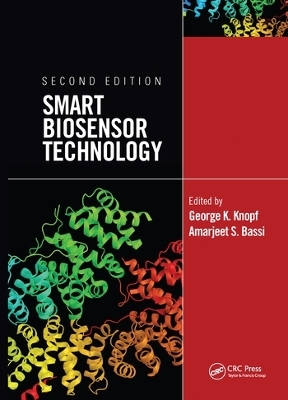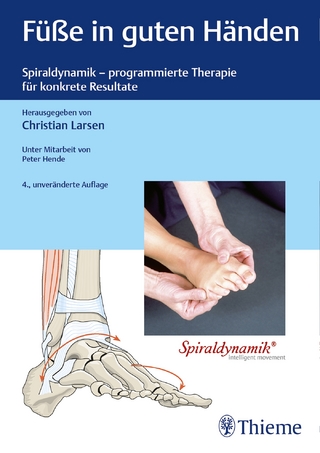
Smart Biosensor Technology
CRC Press (Verlag)
978-0-367-57065-1 (ISBN)
Based on the success of the first edition, this second edition continues to build upon fundamental principles of biosensor design and incorporates recent advances in intelligent materials and novel fabrication techniques for a broad range of real world applications. The book provides a multi-disciplinary focus to capture the ever-expanding field of biosensors.
Smart Biosensor Technology, Second Edition includes contributions from leading specialists in a wide variety of fields with a common focus on smart biosensor design. With 21 chapters organized in five parts, this compendium covers the fundamentals of smart biosensor technology, important issues related to material design and selection, principles of biosensor design and fabrication, advances in bioelectronics, and a look at specific applications related to pathogen detection, toxicity monitoring, microfluidics and healthcare.
Features
Provides a solid background in the underlying principles of biosensor design and breakthrough technologies for creating more intelligent biosensors
Focusses on material design and selection including cutting-edge developments in carbon nanotubes, polymer nanowires, and porous silicon
Examines machine learning and introduces concepts such as DNA-based molecular computing for smart biosensor function
Explores the principles of bioelectronics and nerve cell microelectrode arrays for creating novel transducers and physiological biosensors
Devotes several chapters to biosensors developed to detect and monitor a variety of toxins and pathogens
Offers expert opinions on the future directions, challenges and opportunities in the field
George K. Knopf is a Professor in the Department of Mechanical & Materials Engineering at the University of Western Ontario (Canada). His areas of expertise and research interest include intelligent systems for design, laser microfabrication, micro-optics, optical microactuators, biosensors and bioelectronic imaging arrays.
Section I: Overview and Fundamentals 1. Introduction to Biosensors and Bioelectronics 2. Toward Understanding the Intelligent Properties of Biological Macromolecules: Implications for Their Design into Biosensors Section II: Material Design and Selection 3. Molecular Film–Assembled Detection System for Biosensors by Layer-by-Layer Adsorption 4. Nanotubes and Nanowires for Biosensing: From Basic Science to Applications 5. Conducting Polymer Nanowire-Based Bio-Field Effect Transistor for Label-Free Detection 6. Optical Methods of Single Molecule Detection and Applications in Biosensors Section III: Biosensor Design and Fabrication 7. Porous Silicon in Biosensing Applications 8. The Challenge of Human Skin: Engineering the Biotic/Abiotic Interface 9. Nanoscale Optical Biosensors and Biochips for Cellular Diagnostics 10. Molecular Computing for Construction of Smart Biosensors from Deoxyribonucleic Acid–Based Logic Gates Section IV: Bioelectronics 11. High Information Content Physiological Biosensors: Nerve Cell Networks on Microelectrode Arrays 12. Bacteriorhodopsin Protein: From a Biological Proton Pump to Functionalizing Photo-Electro-Chemical Transducers 13. Color-Sensitive Biosensors for Imaging Applications 14. Printable Electronics for Biosensing 15. Passive Biosensors for Flexible Hybrid-Printed Electronic Systems Section V: Applications in Detection and Monitoring 16. Optical Biosensors in Foodborne Pathogen Detection 17. Multiarray Biosensors for Toxicity Monitoring 18. Biosensors for the Detection of Emerging Plants and Animals Fungal Pathogens 19. Droplet Microfluidics 20. Battery-Free Wireless Sensors for Healthcare and Food Quality Monitoring 21. Perspectives on the Future of Biosensor Technology
| Erscheinungsdatum | 01.07.2020 |
|---|---|
| Verlagsort | London |
| Sprache | englisch |
| Maße | 178 x 254 mm |
| Gewicht | 453 g |
| Themenwelt | Medizin / Pharmazie ► Physiotherapie / Ergotherapie ► Orthopädie |
| Technik ► Medizintechnik | |
| Technik ► Umwelttechnik / Biotechnologie | |
| ISBN-10 | 0-367-57065-3 / 0367570653 |
| ISBN-13 | 978-0-367-57065-1 / 9780367570651 |
| Zustand | Neuware |
| Informationen gemäß Produktsicherheitsverordnung (GPSR) | |
| Haben Sie eine Frage zum Produkt? |
aus dem Bereich


